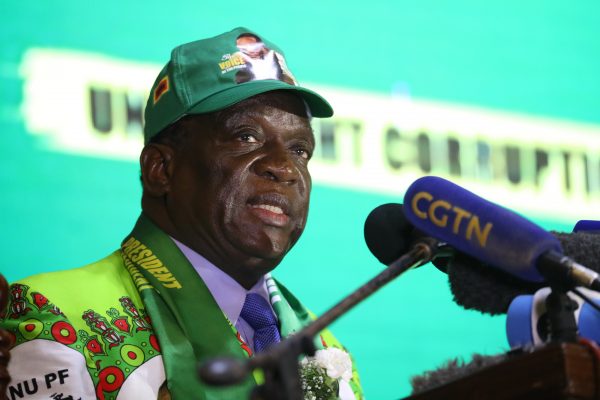
One of the reasons Zimbabweans were eager to see long-time ruler Robert Mugabe’s back was because his regime stifled freedom of expression and those that dared criticise him publicly paid dearly.
BY RICHARD CHIDZA/VANESSA GONYE
According to the Zimbabwe Lawyers for Human Rights (ZLHR), at least 200 people were arrested between 2010 and November last year for insulting Mugabe.
When the doddering 94-year-old was toppled during the November 2017 coup that swept his long-time righthand man Emmerson Mnangagwa into power, hopes were high the persecution would become a thing of the past.
Mnangagwa promised a “new democracy” and declared that the “voice of the people is the voice of God”.
However, the staggering number of people arrested for insulting Mnangagwa since his ascension to the throne proves that “the more things change, the more they remain the same”.
“At least 10 people have been charged with insulting the president or undermining the office of the president since November last year,” ZLHR spokesperson Kumbirai Mafunda said.
If the ZLHR statistics are anything to go by, Mnangagwa’s regime is yet to break with the past.
- Chamisa under fire over US$120K donation
- Mavhunga puts DeMbare into Chibuku quarterfinals
- Pension funds bet on Cabora Bassa oilfields
- Councils defy govt fire tender directive
Keep Reading
“From 2010 to the end of his rule last year, Mugabe’s government had arrested over 200 citizens and charged them under the notorious insult laws,” Mafunda added.
Under the so-called new dispensation, some people have been dragged before the courts for insulting Mnangagwa, tearing his campaign posters or undermining his authority the same way his predecessor reacted to dissent.
Harare-based political analyst Vivid Gwede said Zimbabwe was yet to see any change a year after Mugabe’s fall, especially when it came to people’s freedoms.
“Since November, it has been a year of disappointment. Unfortunately, people had begun to think that anything bad the country was experiencing had to do with Mugabe,” he said.
“But from November, we have seen it is the entire system that needed an overhaul.
“We have an economy that is increasingly fragile, life is difficult for the general populace, we have the emergence of cholera and there is general disorder.”
He said apart from the slight improvement in respecting citizens’ freedom of expression, little had changed under Mnangagwa.
Gwede said the economy continued to be in bad shape owing to poor governance as well as increased domestic debt.
“We have seen a rise in the domestic debt, a very huge debt because we have no principles on spending, we continue to focus finances on issues of little importance. in terms of democracy, a lot needs to be changed, the state has not opened much space to individuals willing to bring change in the country,” he said.
“The issue of corruption hasn’t been resolved. There is politicisation of corruption in the country where one who has fallen out of favour with the system is exposed while the rest are shielded.
“I would say the year after Mugabe’s fall does not live up to the people’s celebrations on November 18 last year. people’s living conditions are worsening, the economy is in a mess.”
However, economic analyst Vince Musewe said Zimbabweans needed to be patient with Mnangagwa as he was determined to change the fortunes of the country.
“For once we have a president who understands the imperatives of creating a vibrant, inclusive and growing economy,” he said.
“Turning the economy around is not an event, but a process and despite scepticism and the continued barrage of criticism from all quarters, he is staying focused on the desired outcomes.
“The challenge of changing the post-Mugabe legacy and culture to create a new narrative is not easy and will take some doing.
“The key economic challenges are fiscal discipline, currency reforms, macro-economic stability and dealing with corruption.
“These will attract much-needed investment into the country and, in my opinion, we need to speed up bringing the corrupt to book as this will demonstrate political will to make things right.”
Mnangagwa says his goal is to turn Zimbabwe into a middle income country by 2030.
He has also promised to nurture the country’s democracy, but critics argue that he failed the test when the July 30 elections, where he beat MDC Alliance candidate Nelson Chamisa, were disputed.









